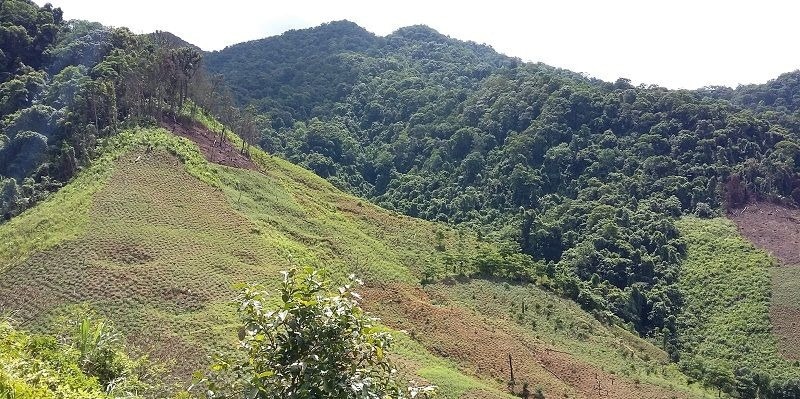According to recent research, deforestation is reducing rainfall across massive parts of the tropics.

Image Credit: University of Leeds
Individuals living in tropical forest communities have frequently complained that as trees are removed, the climate becomes hotter and drier, but researchers have yet to pinpoint a clear connection between the loss of tree cover and a decrease in rainfall.
A team of researchers from the University of Leeds merged satellite data on deforestation and rainfall to demonstrate that the loss of tree cover in the tropics over the last 14 years was linked to decreases in rainfall.
Researchers assume that if the current rate of deforestation in the Congo continues, rainfall in the region could be lowered by 8 to 12% by the end of the century, having a major effect on biodiversity and farming.
Low rainfall may also jeopardize the survival of the Congo forests, which are among the world’s largest carbon sinks.
The study’s lead author, Callum Smith, a Doctoral Researcher in the School of Earth and Environment at Leeds, said the investigation offers “compelling evidence” to safeguard forests from unrestrained clearing.
Tropical forests play a critical role in the hydrological cycle through helping to maintain local and regional rainfall patterns. The reduction in rainfall caused by tropical deforestation will impact people living nearby through increased water scarcity and depressed crop yields. Tropical forests themselves rely on moisture to survive and remaining areas of forest will be impacted by a drier climate.
Callum Smith, Doctoral Researcher, School of Earth and Environment, University of Leeds
The study was published in the scientific journal Nature.
The scientists investigated the effects of forest loss in three tropics regions: the Amazon, the Congo, and Southeast Asia, all of which have encountered rapid land-use changes.
The research examined satellite observations from 2003 to 2017, to recognize locations where forests had been cleared. Rainfall data from these areas was likened to rainfall from nearby areas where forests had not been lost using satellites.
The study found that tropical forest loss reduced rainfall throughout the year, including during the dry season, when any additional drying would have the biggest effect on plant and animal ecosystems. The wet season saw the greatest absolute decline in precipitation, with up to 0.6 mm less rainfall per month for every percentage point loss of forest cover.
The researchers caution in their article that climate change will cause more drought, aggravated by continued deforestation.
Link Between Forest Cover and Rainfall
It is considered that the loss of tree cover interrupts the process by which moisture from leaves is reverted to the atmosphere, where it eventually forms rain clouds via a mechanism known as evapotranspiration.
A decrease in rainfall would be harmful to agriculture and hydropower plants, as well as natural ecosystems. This would have an impact on the health of the forests as well as local communities.
According to the researchers, crop yields fall by 0.5% for every 1% decrease in rainfall.
Tropical Forests Sustain Rainfall
Local people living near deforested regions often report a hotter and drier climate after the forests are cleared. But until now this effect had not been seen in rainfall observations. The study shows the critical importance of tropical forests in sustaining rainfall. Although there have been efforts to halt deforestation, the loss of forest cover in the tropics has continued. There needs to be renewed efforts to stop forests being lost and to regenerate lost and degraded areas.
Dominick Spracklen, Professor, School of Earth and Environment, University of Leeds
Dominick Spracklen supervised the project.
According to the researchers, a decrease in rainfall has a negative impact on biodiversity, raises the risk of forest fires, and decreases carbon sequestration, which occurs when nature eliminates carbon from the atmosphere and stores it.
The study was supported by the European Research Council under the European Union’s Horizon 2020 research and innovation program and the Newton Fund, through the Met Office Climate Science for Service Partnership Brazil.
The article was authored by Callum Smith, Dr. Jess Baker, and Professor Dominick Spracklen, all from the University of Leeds.
Journal Reference:
Smith, C., et al. (2023) Tropical deforestation causes large reductions in observed precipitation. Nature. doi.org/10.1038/s41586-022-05690-1.